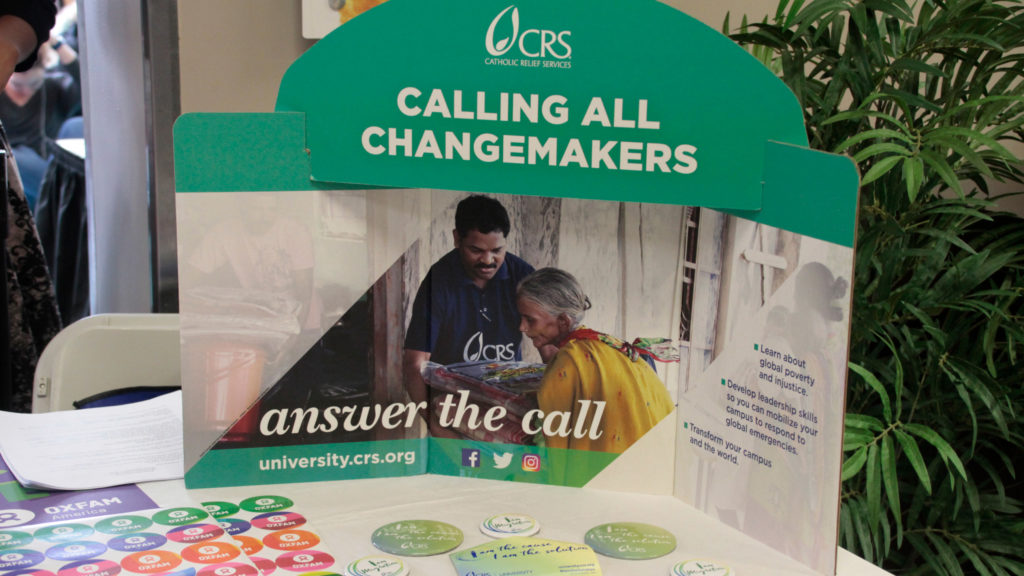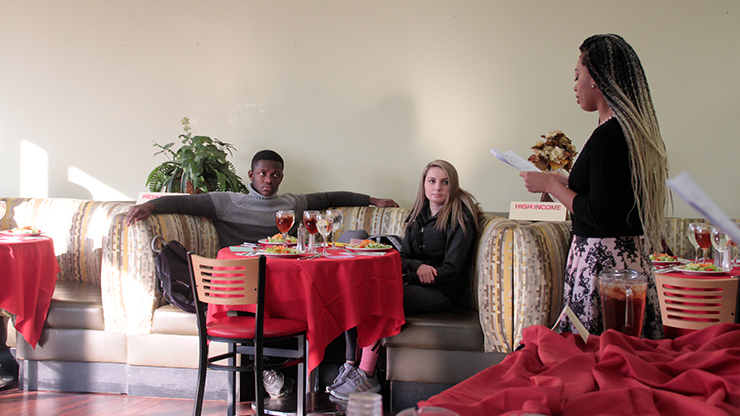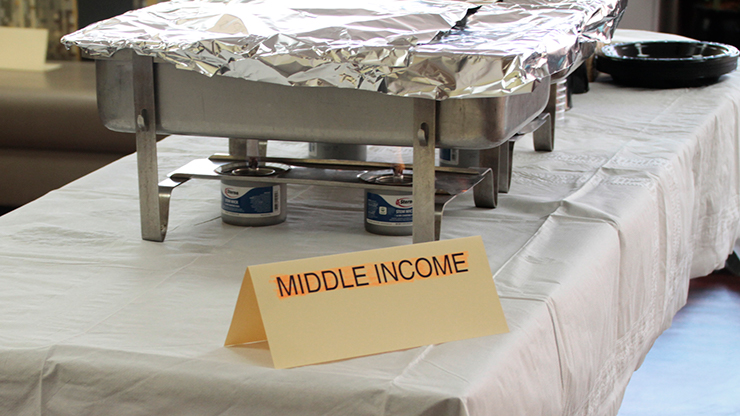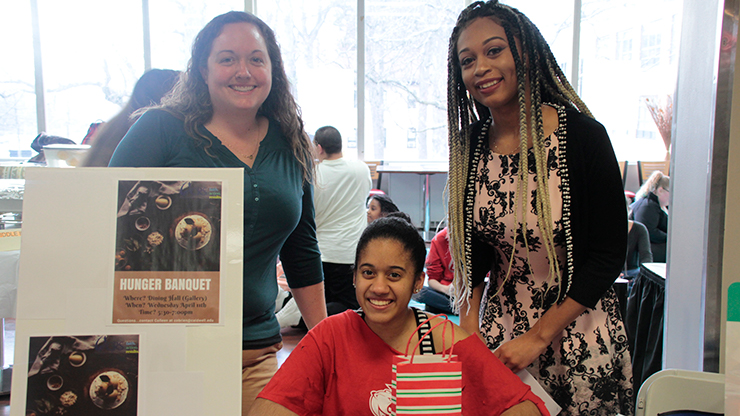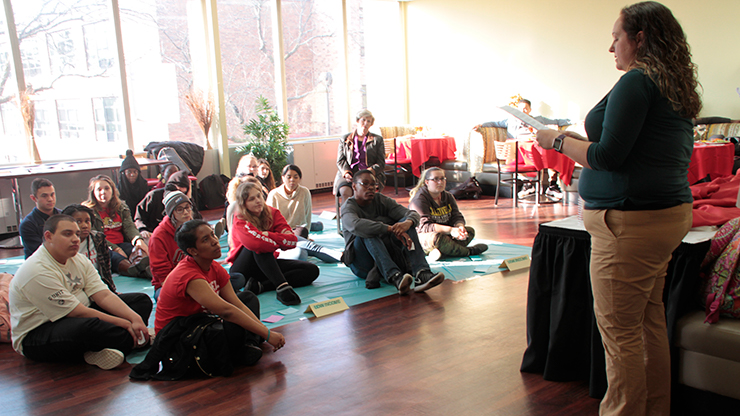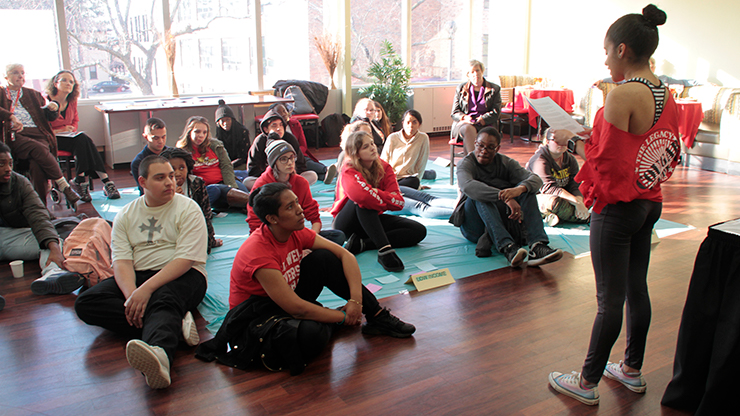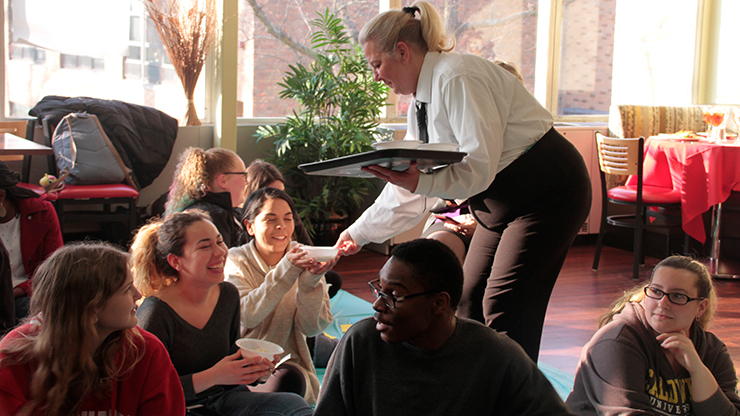Caldwell University
April 17, 2018
Hunger Banquet raises awareness about global poverty
Caldwell, N.J. – April 17, 2018 – Sitting on the floor eating rice with no utensils at dinner is something many Caldwell University students are not used to doing. But it was something several experienced at the Catholic Relief Services Student Ambassador “I Am Global Hunger Banquet” on April 11.
At the beginning of the event, the nearly 40 students, faculty and staff participants were invited to pick a slip of paper that gave them a number to text for a brief summary of a real person somewhere in the world whose role they would play. Each participant was designated to sit in one of three areas: low income, middle income or high income.
The simulation, said Colleen O’Brien, director of campus ministry, “is about understanding what happens in other cultures, even when things might seem unjust or unfair to us.”
The high-income players sat at tables nicely set with tablecloths and silverware. Servers brought them their food for a fine dining experience. The middle-income participants were invited to sit on chairs, but they did not have tables. They were given rice and beans and used plastic spoons and paper plates. The low-income participants had to sit on the floor and were given water to drink and rice to eat with no utensils.
Elaine Tsogmegha, a senior, is originally from Cameroon. She played the role of a 20-year-old middle-class wife from Yemen who is the mother of two boys. “She was forced into arranged marriage at a very young age, which she said is very common in Yemen. She is very thankful that her family had a roof over their heads and that they had food to eat. She feels like a single parent because she stays home to raise her boys while her husband is out working so the family have enough to keep providing for their needs,” said Tsogmegha.
The simulation made Tsogmegha think about ways she could help effect change. She was particularly shaken to learn that the country of Madagascar has not had rain in years. “The first thing I could think about was the amount of water I wasted in the morning while taking my shower where in Madagascar, they can’t even afford to drink a bottle of water. I sat there and wondered what could I do to help?” She was inspired to attend more events like this to learn about poverty and possibly to volunteer at a soup kitchen or a food bank. “I have been lucky enough to have food to eat … but what makes me think that the situation cannot change tomorrow?”
Keyshawn Pryer and Idris Givens, freshmen, agreed the event was an eye-opening experience. In his role, Pryer was a person of middle income who, due to life circumstances, was bumped down to low income; he saw how quickly things can change in a person’s life. He said this made him think about what it means to be too picky about food. Givens, who was in the low-income area, said it made him appreciate the basics in life like having a coat or a jacket.
The Catholic Relief Services Club ambassadors are Brooke McPherson, Naomi Wingate, Yaskayra Gonzalez, Jessica Cusimano, Joseph Severino, and Danielle Schiavone. Gonzalez said the statistics they shared on poverty in different countries around the world was “mind blowing…the reality on a global scale is something that most people don’t see or even understand.”
O’Brien believes everyone took something away from the experience. “It was a great display or simulation of the inequalities that exist in our world when it comes to food and resource allocation on a global scale. Students were able to get a taste of what it might really be like to only make around $5 per day and what type of food you could then afford to feed your family.”
Before leaving, participants were asked to reflect on the steps they could take to alleviate hunger and poverty. CRS resources were available with information on how to advocate for people around the globe.






